Clinical Implementation Pilots
PRECISE rolled out its CIP Grant Call in Jul 2021 to provide funding for pilots which facilitate the incorporation of genetic/genomic tests into clinical pathways that improve patient outcomes while maintaining sustainable per capita cost and optimising the healthcare experiences for both healthcare providers and patients. This aligns with the Ministry of Health’s Healthier SG strategy, leading to better patient outcomes through early detection, accurate diagnosis, and targeted treatments.
The objectives of the CIP grant call were to:
1. Achieve progress towards Singapore’s RIE 2025 HHP goals; and
2. Inform policy decision-making for implementation in the local healthcare system
PRECISE has awarded 5 CIPs in : Breast Cancer, Hereditary & Familial Cancers, Familial Hypercholesterolemia, Primary Glomerular Diseases and Pharmacogenomics. These CIPs will seek to embed clinical application of genetic/genomic tests to diagnose, manage and/or treat a particular patient cohort(s) and/or population for their specific conditions or disease phenotypes.
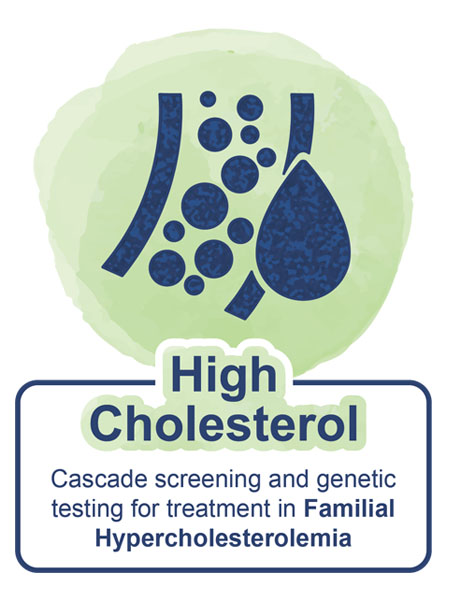
|
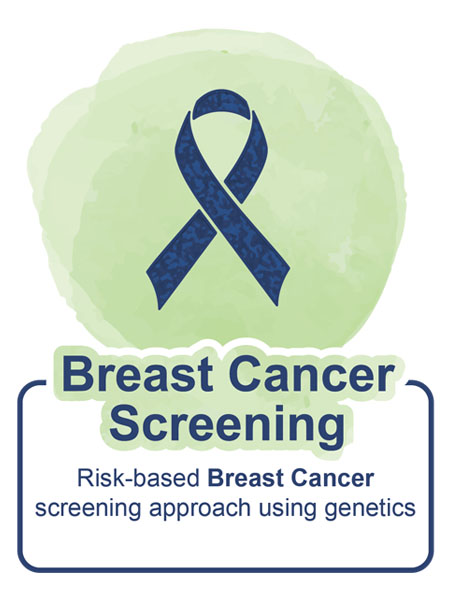
|
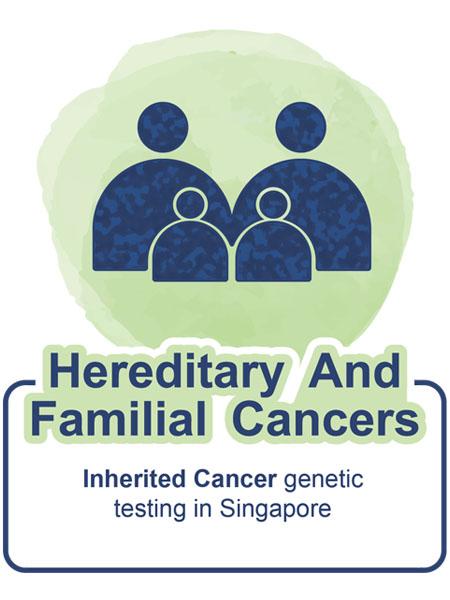
|
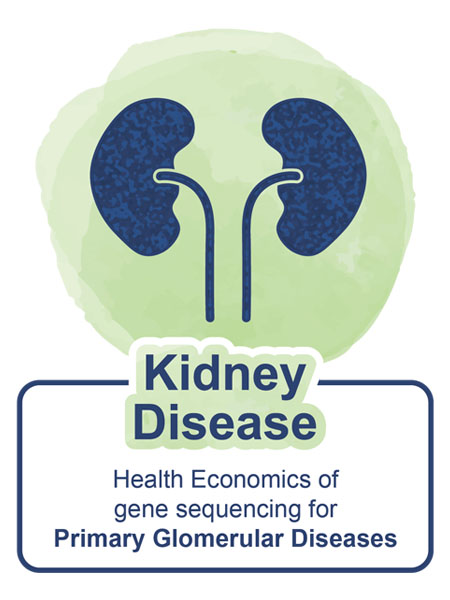
|
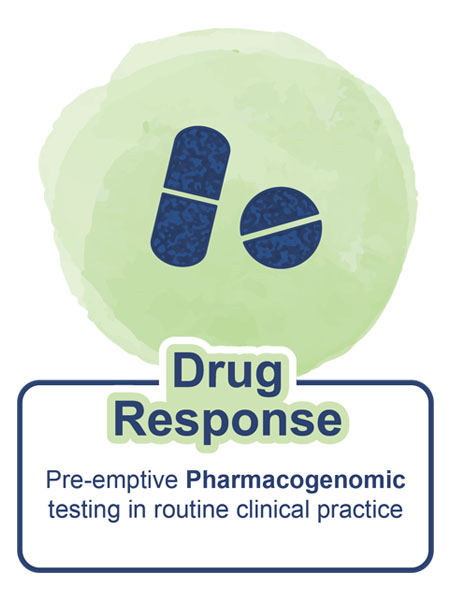
|
| Awarded CIPs | Summary of Proposal | Institutions Involved |
|---|---|---|
|
1. BREAst Screening Tailored for HEr (BREATHE) – Pilot study of a risk-based breast cancer screening approach in Singapore (“BREATHE”)
Clinical Co-PI: A/Prof Mikael Hartman Department of Surgery, National University Hospital Health Economist Co-PI: Dr Wang Yi Senior Research Fellow, Saw Swee Hock School of Public Health, National University of Singapore Scientific Co-PI: Dr Li Jingmei Group Leader, Genome Institute of Singapore Agency for Science, Technology and Research (A\*STAR) |
This pilot aims to integrate breast cancer risk prediction tools, incorporating both genetic and non-genetic factors, to stratify participants to differing risks of developing breast cancer with the corresponding breast health recommendations. The feasibility of a personal risk-based breast cancer screening paradigm will be assessed, with the aim to ultimately empower educated decisions in screening frequencies to suit personal risk levels to increase participation in routine screening and to optimise efficiency and cost. |
Alexandra Hospital Bukit Batok Polyclinic Choa Chu Kang Polyclinic Genome Institute of Singapore, A\*STAR Jurong Medical Centre, National University Hospital National Cancer Centre Singapore Ng Teng Fong General Hospital Saw Swee Hock School of Public Health, National University of Singapore Yong Loo Lin School of Medicine, National University of Singapore |
|
2. Improving access for clinical hereditary cancer genetic testing in Singapore (“HC”)
Clinical Co-PI: A/Prof Joanne Ngeow Head and Senior Consultant, Cancer Genetics Service, National Cancer Centre Singapore; Genomic Medicine, Lee Kong Chian School of Medicine Health Economist Co-PI: A/Prof Ken Redekop Erasmus School of Health Policy and Management, Erasmus University Rotterdam |
This pilot aims to improve access to clinical hereditary cancer genetic testing in probands (index cases) and First-Degree Relatives (FDRs) in Singapore. This will be done through addressing key barriers such as the identification and ascertainment of individuals with genetic risks of cancer, costs, shortcomings in the conventional proband-mediated process of cascade testing; and understanding reasons behind declining genetic testing. |
Changi General Hospital KK Women’s and Children’s Hospital National Cancer Centre Singapore National Healthcare Group National University Health System National University Cancer Institute, Singapore Sengkang General Hospital Singapore General Hospital SingHealth Tan Tock Seng Hospital |
|
3. Addressing the challenges in Case identification, Cascade Screening, Genetic testing and Treatment in Familial Hypercholesterolemia – a cross-cluster clinical implementation program by FHCARE
(“FH”)
Clinical Co-PI: A/Prof Tavintharan Subramaniam Director, Diabetes Centre, Admiralty Medical Centre; Senior Consultant, Department of Medicine, Khoo Teck Puat Hospital; Health Economist Co-PI: A/Prof Wee Hwee Lin Saw Swee Hock School of Public Health, National University of Singapore |
This pilot aims to address the frequent underdiagnosis and undertreatment of Familial Hypercholesterolemia (FH) patients in Singapore through introducing interventions at multiple points from increasing case identification, reducing barriers to maximise cascade screening of First Degree Relatives (FDRs) and adopting a registry approach to address treatment adherence and gaps. |
Admiralty Medical Centre Alexandra Hospital Changi General Hospital KK Women’s and Children’s Hospital Khoo Teck Puat Hospital National Healthcare Group Polyclinics National University Polyclinics National Heart Centre of Singapore National University Hospital Ng Teng Fong General Hospital Sengkang General Hospital Singapore General Hospital Tan Tock Seng Hospital |
|
4. Health and Economic Impact of Next Generation Sequencing in Primary Glomerular Diseases in Singapore (“PGD”)
Clinical Co-PI: A/Prof Ng Kar Hui Senior Consultant, Division of Paediatric Nephrology, Dialysis and Renal Transplantation, National University Hospital; National University of Singapore Health Economist Co-PI: Prof David Matchar Programme in Health Services and Systems Research, Duke-NUS Medical School, Singapore |
This pilot aims to implement genetic testing for glomerular diseases in the clinics for Singapore. It also aims to evaluate the cost-effectiveness of genetic testing for glomerular diseases in the local context set against international guidelines. International guidelines have highly recommended genetic testing early in the workup of selected glomerular diseases in adults and children. Genetic testing will be provided to individuals with glomerular diseases, where the treatment plans can be better adjusted, thereby reducing unnecessary risks of immunosuppression to those will not benefit. Specific early interventions, made possible only by early genetic diagnosis, can also be instituted as a result of genetic testing, and they have also been shown to potentially delay kidney failure by more than 2 decades. |
Duke-NUS Medical School KK Women’s and Children’s Hospital National University Hospital National University of Singapore Singapore General Hospital Tan Tock Seng Hospital |
|
5. Clinical Implementation of Pre-emptive Pharmacogenomic Testing as a Precision Medicine Tool in Routine Clinical Practice in Singapore (“PGx”)
Clinical Co-PI: Prof Goh Boon Cher Department of Haematology-Oncology, National University Cancer Institute, Singapore Health Economist Co-PI: A/Prof Wee Hwee Lin Saw Swee Hock School of Public Health, National University of Singapore |
This pilot aims to study the cost-effectiveness and implementation barriers of incorporating pre-emptive multi-drug/multi-gene PGx testing as a pre-emptive precision medicine clinical tool in routine clinical practice. It will also seek to identify the target population most likely to benefit from pre-emptive PGx, and prioritise the clinically actionable drug-gene pairs that should be incorporated into the genotyping platform. |
Khoo Teck Puat Hospital National University Hospital Ng Teng Fong General Hospital Singapore General Hospital Tan Tock Seng Hospital |


